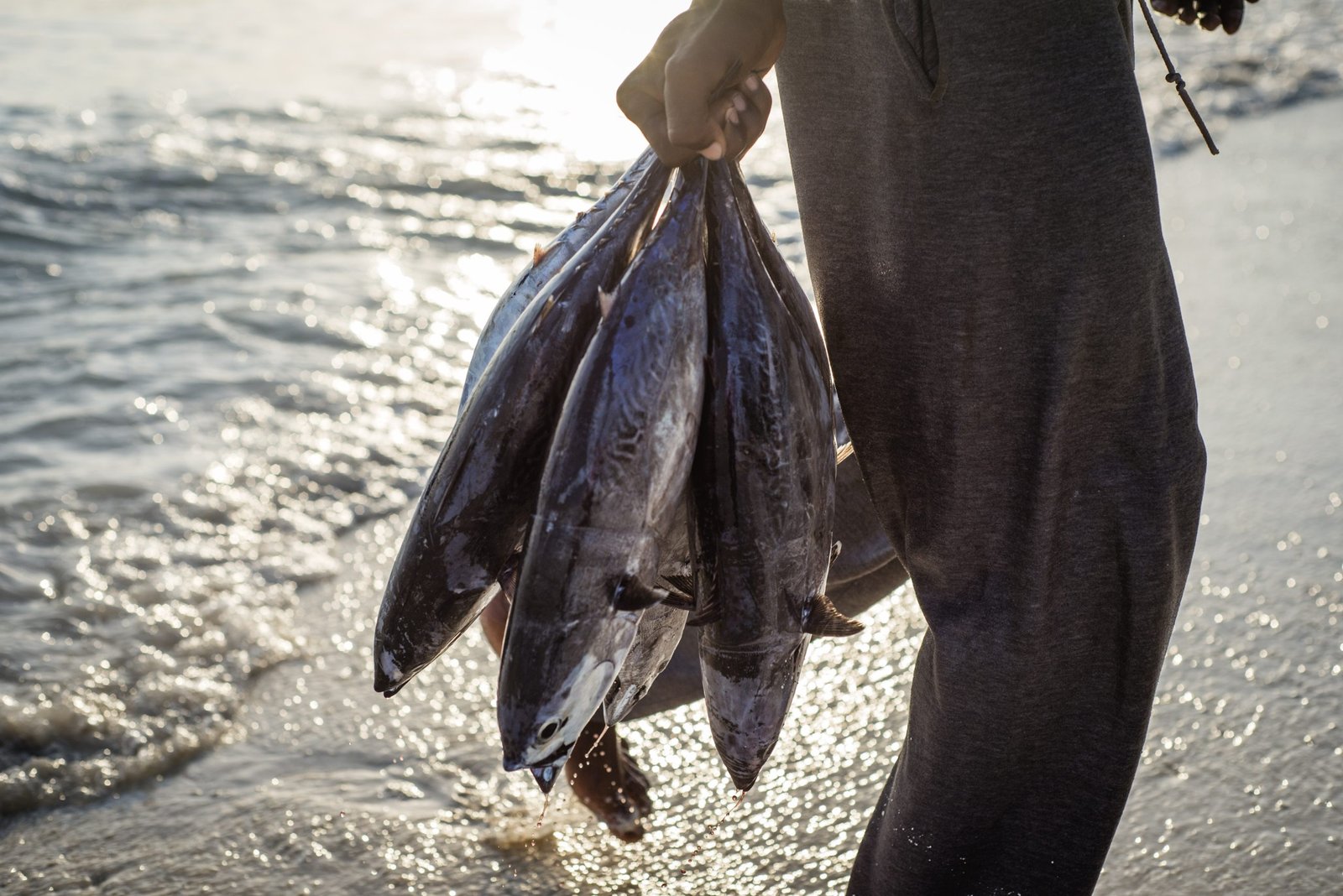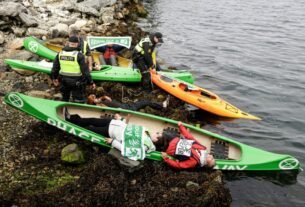Europe’s favourite fish is at the heart of a fresh fight over how it’s caught.
The EU’s top court recently ruled that the European Commission failed to properly assess a complaint by French NGO BLOOM over its opposition in 2023 to banning fish aggregating devices (FADs) in the Indian Ocean. The ruling forces the EU executive to defend its stance – a position backed by the industry, which says the proposed ban was intended to block European vessels from those waters.
FADs are floating objects with ropes or nets hanging beneath them to attract fish, which allows crews to encircle the fish with large “purse seine” nets and haul them aboard. This method is widely used by the EU’s long-distance tuna fleet, particularly by French and Spanish vessels, but environmentalists claim that it kills turtles, sharks, and rays, and can wash up on beaches or damage coral reefs.
BLOOM’s scientific director, Frédéric Le Manach, called the judgment “a moment for clarification” following years of campaigning and said he hopes the Commission will change its position at upcoming meetings of the Indian Ocean Tuna Commission (IOTC).
Tuna is the most consumed fish species in the EU, most of it canned, yet around 70% is imported. Much of the EU’s own Indian Ocean catch is processed in countries such as the Seychelles before entering the European market.
Industry pushback
The tuna sector played down the ruling. “The court’s decision only concerns an internal procedural matter of the European Commission,” said Anne-France Mattlet, director of Europêche’s tuna group. She defended purse-seine fishing as sustainable and praised EU fishing rules, which also apply abroad, as the toughest in the world.
When a partial FAD ban was proposed at the IOTC in 2023, Europêche criticised it as an attempt to force EU vessels, as well as those from Seychelles, Mauritius, Oman, Tanzania and Korea, out of those waters. The group argued that none of the ban’s backers used FADs themselves.
“[It] was not only unfair, but also operationally unworkable,” Mattlet told Euractiv. She applauded the new FAD rules adopted by the IOTC in 2024, which include certain restrictions but not an outright ban.
Mattlet said that the industry is moving towards non-entangling gear and played down claims of widespread bycatch. “Smart” buoys anchored to many FADs can also help reduce accidental captures by using echo-sounders to identify species, she added.
In response to accusations of overfishing, Mattlet noted that all major tropical tuna species in the IOTC now have specific catch limits.
Ongoing fight
Bloom remains unconvinced.
“The EU industry should look into alternative ways of fishing,” said Le Manach, highlighting “free school” fishing, where vessels track tuna along their natural migratory routes and deploy nets in open water instead of surrounding them with FADs.
“Europeche keeps complaining that there is a plot against the EU industry to expel them from everywhere but this is the usual trumpist rhetoric”.
The Commission has until late September to appeal against the court’s ruling. BLOOM has also sued France over its seat at the IOTC, with a verdict pending in Paris.
The feud between Europêche and BLOOM stretches back years, with the industry accusing the NGO of owing EU institutions money and claiming its president profited from representing fossil fuel giants – allegations BLOOM strongly denies.
(de)





